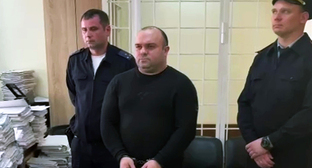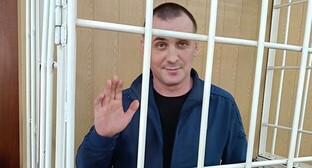08 April 2003, 01:10
Bakikhanov, Abbas-Kuli-aga
Pen name ? Kudsi.
Azerbaijani writer and scientist.
Born June 21, 1794, in the village of Amiradjany in Baku area, in a family of one of Baku khans. Spent his young years in Kuba, his father's country estate. Was brilliantly educated, knew oriental languages, mainly Persian and Arabic, was acquainted with works of prominent Iranian poets, studied the works of Iranian scientists and philosophers. In 1819, moved to Tiflis, where he entered the service of general Ermolov's chancellery as a translator/interpreter.
The Tiflis period of Bakikhanov's life was fruitful. Serving in the military and diplomatic field, he got acquainted closely with eminent people of art who stayed in the Caucasus at that time. Was friends with A.S. Griboedov and A.A. Bestuzhev. During these years, he became fluent in Russian and learnt French. Bakikhanov participated in the wars Russia led with Iran and Turkey, took part in Russo-Iranian peace negotiations in Turkmanchay (1828), and received colonelcy.
In Tiflis, Bakikhanov had an opportunity to meet Georgian and Armenian writers: G. Orbeliani, A. Chavchavadze, N. Baratashvili, H. Abovyan, poet Y.P. Polonsky, and Polish revolutionary T. Lado-Zablotski who lived in the Caucasus. In 1833, he traveled around Russia, visited Moscow and St. Petersburg, spent some time in Latvia, Lithuania, and Poland. Bakikhanov lived over six months in Warsaw. There he met A.S. Pushkin's sister, Olga Sergeevna Pavlischeva. At her request, Bakikhanov brought a letter to the Pushkin family in May 1834 and met the celebrated Russian poet.
Upon return from Warsaw, Bakikhanov lived in his native city of Kuba, where he founded a literary majlis named Gyulistan (Flower Garden). Poets and poetry enthusiasts gathered around it. In Kuba, he finalized a number of his literature works, including Kitabi Askeriye, in which prose intermingles with lyric poetry pieces. He also authored such scientific and journalistic works as Takhzib ul-akhlag (Improvement of Morals), Asrar ul-melekut (Secrets of Heaven), Kanuni Kudsi, Gyulistan Irem, Kitabi-Askeriye, and a number of didactic stories in lyric form, etc.
A major scientific research Gyulistan Irem dedicated to the history of Azerbaijan and Dagestan was highly estimated by Russian and foreign scientists of the time.
The majority of Bakikhanov's scientific and journalist works were of educative nature. From the position of scientific achievements of his time, he explained the issues of astronomy, geography, and socio-ethic problems. In his didactic parables, he appealed to industriousness and honesty and sharply criticized the inanity of shortsighted authorities, careerism, cruelty, and despotism reigning in the society.
Bakikhanov was the first Azerbaijani educator of a new type. His enlightenment mission had been formed not only under the influence of traditional values of the Muslim East, but also with the inspiration from European and Russian enlightenment spirit. It was distinguished with the interest for exact sciences, natural sciences, and creations of the advanced Russian artists.
Abbas-Kuli-aga Bakikhanov deceased in Kuba in 1847.




